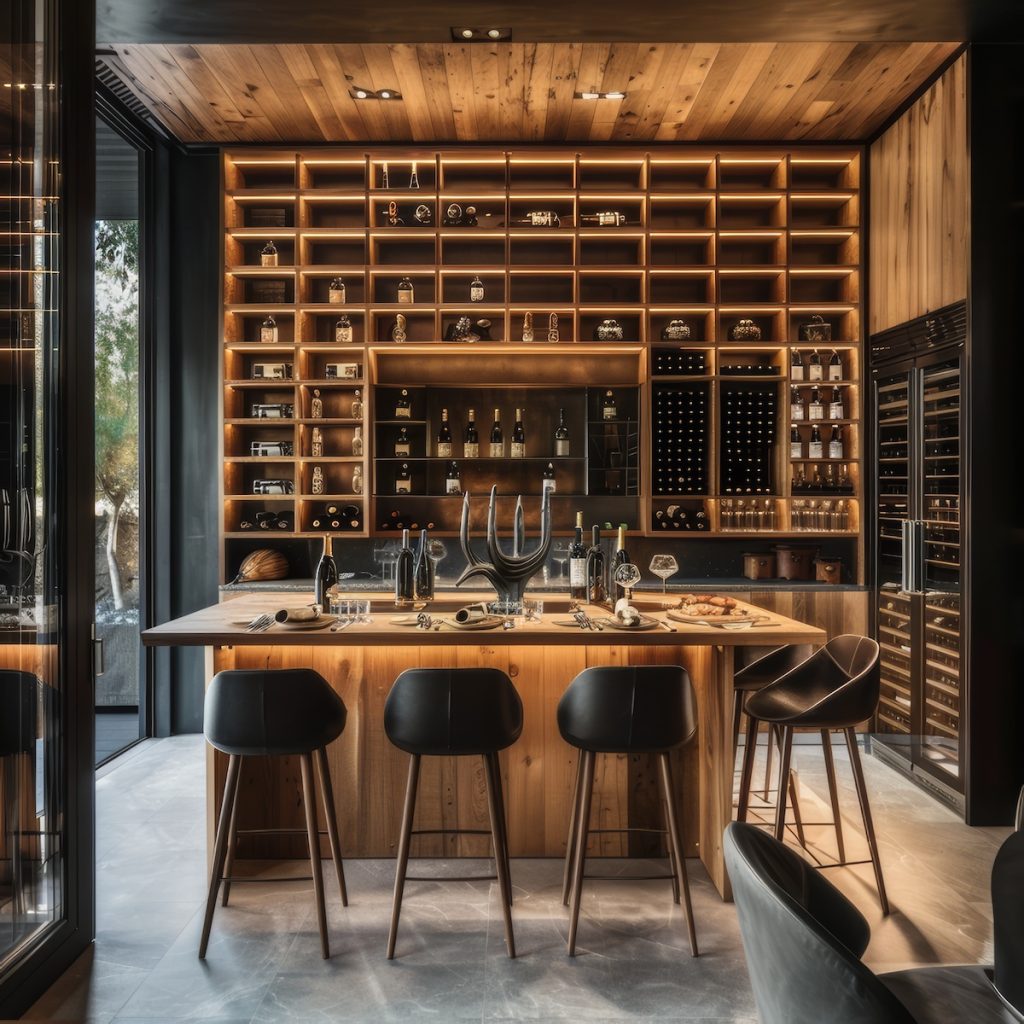How to Build a Wine Cellar in Your Home
If you’re a connoisseur of fine wines, you probably keep a few bottles in your home. However, if you are looking to expand your collection or if you would like to keep wines for more than about six months, you’ll need a wine cellar to store the vintages properly.
The most important thing to remember is that not all wines improve with age. While most red wines improve with age and careful storage, white wines are often at their peak over a more short-term time frame.
Knowing how to store wines properly can help you plan the best wine cellar for your home, build it to suit your needs, and protect your growing collection.
Considerations for Wine Cellar Environments
To store wine properly, you must control humidity, temperature, light, and vibration. You can build your wine cellar in a basement or even a closet so long as you can properly regulate the conditions and protect the wine.
The storage areas will be a good place to store your wines for long-term storage as long as you can keep them within specific parameters.
What’s more important regarding the location is how you intend to use the cellar. If you visit it daily and have the space, a large closet may be your best choice. If you visit it less frequently, a basement room will allow more storage and make it easier to keep cool.
- The humidity of your wine cellar should be at approximately 70 percent. This helps to keep the corks moist. A dry cork shrinks, allowing air to enter the bottle and liquid to escape. It’s the same reason wines are stored on their sides, keeping the inner half of the cork wet.
- At the same time, you should monitor the cellar’s humidity and not allow it to rise above 70 percent. Higher humidity can weaken the glue on the labels and even mold the corks.
- Installing monitors in your wine cellar that regulate humidity levels is important. The monitor triggers humidifiers to add moisture as needed, yet they turn off when the appropriate humidity level is reached.
- Temperature is another important factor. Wines must be kept between 50 and 55 degrees Fahrenheit to store well. While a refrigerator can be calibrated to maintain this temperature, it also receives constant use.
- The light turning off and on, the temperature changes when the door is open, and the vibration of the appliance itself all make this an undesirable choice for long-term storage. You’ll need a thermostat and a cooling system for your wine cellar to maintain a proper temperature.
- You’ll also need a warming system if you worry that your cellar may become too cold. Be aware that any temperature modifications you make need to be gentle, as regularly shifting the temperature of the wine will cause it to age more quickly.
- It is important to keep the cellar dark and ensure that the bottles are protected from the light you use when you visit the cellar. While most bottles now have UV protection within the glass, not all do.
- Even bottles with this protection can become “light struck” over time, which means that the light the wine was exposed to has changed its flavor to something resembling wet cardboard. While white wines and champagnes are the most likely to change, light isn’t good for long-term storage of reds, either.
- Ensure that the cellar’s light isn’t shining directly on the bottles. You can always pull a bottle out to check the label, but its place in the rack should still be shadowed even when the light is on.
- Vibrations are the final consideration for a quality wine cellar. While the effects of vibration are debated, it’s believed that they cause the wine to age more quickly. They may impede the natural evolution of the wine, leaving you with vintages that never reach their peak.
- Vibrations come from many sources, so be sure that any machinery that you have in or near your wine cellar doesn’t cause the wine to vibrate.
- Also, be sure to purchase well-constructed and stable racks. Solidly built racks will absorb smaller vibrations and will help to protect your collection.
Building a wine cellar may seem very complicated considering all these concerns. While proper storage does require careful planning, once it is built and the temperature and humidity are calibrated, all you have to do is keep it running.
Check your systems regularly to ensure the cellar is stable, and keep adding more wines as you collect them. Your new wine cellar will keep your wines protected and in prime condition for decades to come.








5 Responses
That is, indeed, an amazing wine cellar. But it would cost so much to build that I would have no money to spend on wine!
Better to buy the wine and just keep it in the basement.
Cheers!
That works for a lot of my friends who have basements that stay at a constant temperature and I am doing it now for my wines but I also know people who don’t have basements or the temp in their basement fluctuates wildly. If you are buying expensive wines to lay down for 10 or more years, it’s important the temperature stays constant. That’s why I am going to build a cellar this year because I purchased some 2005 Bordeaux to lay down.
I would not consider myself a collector. However, I just returned from Italy and while in Montalcino I bought several, various houses 2004 Brunellos and a case of 2004 Rosso di Montalcino. I would like to properly keep these for several years but the number of bottles hardly justifies the expense of a cellar. We don’t tend to have basements in southeast Texas. All the small dorm refrigerator looking wine coolers have terrible reviews for failing to maintain temps and for short lives. What should I do to protect and age the most expensive wines I’ve ever bought. I’m considering putting them in a big igloo cooler and burying them in the woods out back.
Now that’s an interesting idea. I wonder if the wild animals can sniff out wine through the bottle. I guess if you see some funny acting raccoons and ground hogs running around you’ll know the answer.
I don’t think a small dorm refrigerator hold more than a case of wine but some of the larger units hold 150 to 400 bottles and many of them have very good reviews. I would do some more research and check out one of these larger units and I’m sure you will find what you need. Living in Texas and the hot weather you get, it would be a shame to lose any of those Italian wines because of storing.
Wow, I never knew wine storage had so many specific needs and things to consider. I’ve always been fascinated by the idea of incorporating wine into my daily cooking and drinking habits, so I became curious about what I would need to do to store wine myself. After reading your article, I’m now convinced that I should get a wine cellar service professional to set one up for me so I can properly store wine bottles without wasting any of them.